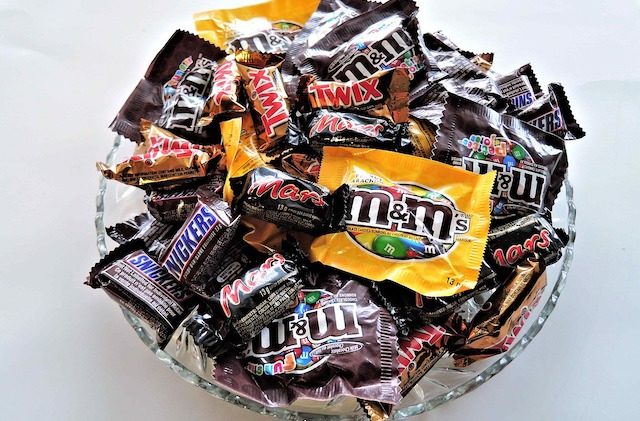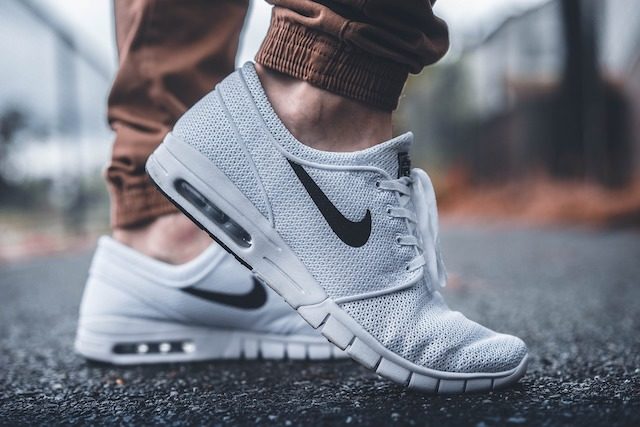The black market has long been a sort of thrilling, taboo topic that everyone is at least passingly aware of, even if we don’t know where to find such a marketplace. Black market goods are typically stolen or counterfeit items and you’ll find them most often online these days. Occasionally you may find a literal black market at a flea market somewhere or in a country with less strict regulations about what can be sold and by whom. But what about gray markets?
Gray markets sell items through non-traditional and non-approved channels. For instance, there’s a vehicle grey market, where drivers in the US can buy UK versions of cars that were never meant for North American roads. But some gray markets get a little more bizarre than all that.
10. Video Games

One of the world’s largest and most well known gray markets these days deals with video games. The gaming market is massive and worth billions of dollars so it’s no surprise many people want a piece of that pie. And since the days of having to put a cartridge in your Nintendo to play a game are lost to antiquity, there’s plenty of room for gray market selling with digital codes.
Here’s a potential scenario: Grandma shows up for Bobby’s 14th birthday and gets him Call of Duty. But he already had the game and now he has a spare CD key to download it. No sense wasting that money. He can sell the code online to someone else. That’s a gray market transaction.
There are many sites online that offer codes for full games, for expansions, for in-game loot and more. Many of these offer codes at a discount over retail because they come from sources like Bobby. They’re gifted games codes, or promos, or whatever. Seems legit so far.
The problem is sometimes someone will buy game guys with a stolen card, then dump those codes on one of these reseller sites. Game makers like EA will catch wind and then deactivate the codes. So what happens to the buyer, who technically didn’t even steal anything? In most cases, they’re out of luck. It’s like buying a watch off a guy on the street – can you be mad when the Rolex turns out to be a Robex?
What makes selling keys a gray market at all? It’s how software companies understand their marketplace and what you, as a customer, agree to when you buy a game. The game key is just that. A key. When you buy a game, you buy access to the game for yourself. The game, however, is not technically yours. Just access to it.
An old-style game, like a Nintendo cartridge, was a physical game put into the world so Nintendo could never say they still owned it or had rights to it. It was yours. But Call of Duty, when you buy it, you need to patch it. You need content updates. You need the manufacturer to play it. So it’s not wholly yours and you cannot sell access to it to someone else because you don’t “own” it in that way. It’s a complex issue of copyright law, but it makes for a large market of people trying to skirt the higher prices for game keys.
9. Toilets

The very idea that there might be a less than legal toilet market is a testament to how much people want things they’re not supposed to have. How could any toilet possibly be illegal? Well, it’s simpler than you might think.
Back in 1994, US Congress passed the Energy Policy and Conservation Act. That law regulated the flow of water through toilets. Every flush was capped at 1.6 gallons, which was not even half of what toilets normally used. It was an effort to help save water, but not everyone approved. Some people want a toilet that flushes like a shotgun going off. Others were annoyed that the new toilets worked so poorly they had to flush a few times, making the so-called “energy saving” benefits useless. If you flush three times, it’s not really saving the environment, is it?
So the old-style toilets were illegal to sell in the US, but they weren’t illegal to own. That meant Americans could drive into Canada, where the toilets were still sold, and buy them there, then bring them home.
8. Prison Chips

It’s a rare thing t hear anything good about prison food. Things like prison Nutraloaf, a nutrient-efficient slab of disgusting mystery substance, is fed to thousands of inmates every day as a punishment and it’s generally considered utterly repulsive. So what could be so good from prison that ex-cons ended up creating a gray market to get a hold of it again? The Whole Shabang.
Made by Keefe Group, these potato chips were made exclusively for sale to correctional facilities. The flavor is akin to All-Dressed chips that are available for sale in Canada. Prisoners loved them and many were disappointed to see that they were unavailable in “the real world” once they got out of jail.
Some industrious chip lovers would visit prisons and pick up the chips from the commissary. From there they could be resold on eBay. The only problem was this was obviously a very limited way of getting a hold of them. The gray market was tiny but powerful. So powerful, in fact, that the company eventually decided to open the market up and make them available outside of prisons as well.
7. Baby Formula

There are few things that are sadder than the idea of a gray market for baby formula, but here we are. The entire structure behind this one is actually very interesting and poses some questions that don’t have a lot of answers. Namely, why did this have to happen?
To start, this is not a market for “normal” formula. Instead, it’s a kind of formula typically only available at hospitals. It’s meant for preemie babies, ones that have special nutritional needs and for whom breast milk is not necessarily an option.
A father of triplets who were born by surrogate found that his three babies responded well to the formula during their time in the NICU at the hospital. But when they went home, the same formula was not commercially available and the babies responded by crying non-stop all day long.
Exhausted and concerned, their father hit the internet and found a similar formula for sale. In Germany. It was organic and comments indicated it had good results. He had some express shipped and, amazingly, it worked. The babies ate and calmed down. But why was it only in Germany?
Weirdly, this was never adequately answered. But that man began importing the formula and became the sole US reseller of it, selling non-FDA approved formula to parents who were in the same desperate situation. There’s nothing wrong with the formula, it’s not shady or even suspect. It’s just not American and thus not FDA-approved because they don’t approve products from abroad.
Selling the formula is by definition a gray market but the fact is it has saved a lot of sleepless nights and helped a lot of babies. Sometimes a gray market isn’t a bad thing at all.
6. College Textbooks

Nearly every college student ends a school year with a stack of books they will never open again. What better option than selling them so the next crop of students can get some use from them? According to publishers, that’s not cool. And they have sued over it in the past.
College texts are notoriously overpriced. Worse, the same books can often be found elsewhere for much cheaper. So one Thai student had his friends and family buy copies of the texts he was using at Cornell back in Thailand at a greatly reduced price, then ship them to him where he sold them on eBay and made $100,000. Incredible, right? The publisher then sued him for $600,000.
The lawsuit actually ended in favor of the publisher at first, but the Supreme Court overturned it in favor of the student. The publisher’s argument rested solely on the fact that they were selling the books for more money and he undercut them, so they wanted to be compensated. Imagine selling a used Prius for twice what you paid for it, and then Toyota suing you for the full price because you ripped them off.
The student was able to prevail thanks to the first sale doctrine, which basically means once you buy a thing you can do anything you like with it. Even if the manufacturer gets mad.
5. Candy

Just because Mars bars and M&Ms are sweet doesn’t mean the company that makes them is. They get serious when someone infringes on their territory, which is what happened with some gray market candy sales in Canada.
Candy is a very regional thing and various rules and regulations place restrictions on what can be sold and where. There’s a gray market for Kinder Eggs in the US because they can’t be sold legally in the country, for instance. There are also issues with pricing. Things are often cheaper in America than they are in Canada and that led to one reseller being sued by Mars.
Aizic Ebert was buying Mars candy in the US and reselling it in Canada for cheaper than Canadian retailers sold it. Mars Canada ended up suing them and winning.
4. Cologne

One of the most odd things to routinely be counterfeited and sold on grey markets is cologne and perfume. It’s almost ubiquitous to see knock-offs of fragrances at discount stores and flea markets. Often they’re even packaged similar to real fragrances and may even use the real fragrance name but say “inspired by” or something like that. There are also resellers who buy old stock and unload it at a discount. Both of these qualify as gray market products.
Manufacturers don’t like gray market fragrances for the obvious potential lost business with knock offs, but also the brand damage of old stock. If you have some genuine cologne, that’s five years old, it may have degraded considerably in that time. Someone who buys it will get a fragrance that is not what the manufacturer intended and will probably be a little foul. Now that customer thinks the fragrance is funky and will have a bad opinion.
Like other products, fragrances are also easily bought abroad at great discounts and then resold in the US. Manufacturers obviously don’t like this.
The attraction is that fragrances are often remarkably overpriced. Compare a knock off to the real deal and it’s staggering. Genuine products can often be tens or hundreds of times more expensive. Sometimes that price is reflected in the quality, but not always. It may also just be a markup for the sake of paying for a name.
3. Tractors

So you need a new tractor, where do you go? John Deere has been a trusted name for years, but a new one might cost you over $17,000 to start from the company. Is there a better option? For some, that’s the gray market.
John Deere tractors are sold all over the world. Agriculture is a worldwide industry, after all. Many countries also have vastly different economies. You can potentially buy the same or similar model of tractor overseas for thousands of dollars less. That makes buying and importing it an attractive option, which sets up a small but lucrative gray market.
In 2004, the importation of many of these John Deere products was banned because, as John Deere stated, they were not designed to meet US safety regulations.
2. Pianos

It may seem like a piano is a pretty niche product and sales can’t be that high even at the best of times. Interestingly enough, the piano industry in America is not doing too bad, with sales over $200 million last year.
Depending on the piano you want, you can pay several hundred dollars to upwards of $10,000. Those who want a piano without the giant price tag are willing to shop around for good deals. The piano gray market is an attractive option.
Gray market pianos often come from Asia, but, as Yamaha points out, there are some considerations that make these pianos a potential problem for buyers. One of the biggest and least obvious is that geography matters for pianos. They’re made of wood and need to be properly manufactured for your climate. The last thing you want is a piano that warps because your house is too dry for it. That’s what happens with gray market models.
The lack of warranty and replacement parts are concerns also mentioned by Yamaha, at least from their POV as a manufacturer. But when a would-be pianist is staring at a $5,000 price tag, it’s not too hard to see why a discount model sounds like a winner.
1. Sneakers

The sneaker industry is preposterously big. Understanding how big is not easy, but use this as an example. Online retailer StockX, which specializes in reselling sneakers and may be the biggest sneaker gray market out there, was given a 2021 valuation of $3.8 billion. That’s a lot of shoes. How could it be so much? Because the global sneaker industry is worth $79 billion.
People love shoes, and sneakers are constantly being redesigned. Initially there was a market for vintage sneakers which are harder and harder to come by thanks to the fact people walk on them all day and they get destroyed. Those who preserved theirs found they could make a decent buck off of them.
This gave rise to the custom sneaker industry, where a plain old shoe is turned into something unique, maybe even redesigned by a celebrity. Certain shoes can end up being in high demand and cost tens of thousands of dollars.
So how is this a gray market at all? Well, it’s all a gray area – no pun intended. Real shoes can of course be resold under that first sale doctrine. But fake shoes are often mixed in making it harder for buyers to tell the difference. Then there’s the issue of modified shoes.
There was controversy in 2021 when 666 pairs of “Satan Shoes” from Nike were being sold. The shoes had human blood and were made in collaboration with Lil Nas X. But they weren’t “real” Nike shoes, they were modified Nike Air Max 97s. Nike had no knowledge of, or input over, their creation. But people were up in arms about Nike’s evil Satan shoes so Nike sued for trademark infringement.
The case was settled and normally Nike and other shoemakers don’t care about modified versions of their shoes, but the media uproar likely forced Nike’s hand. This, a shady area of a gray market is born.